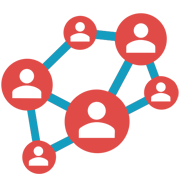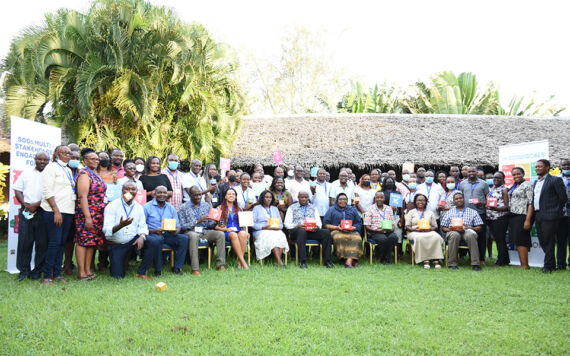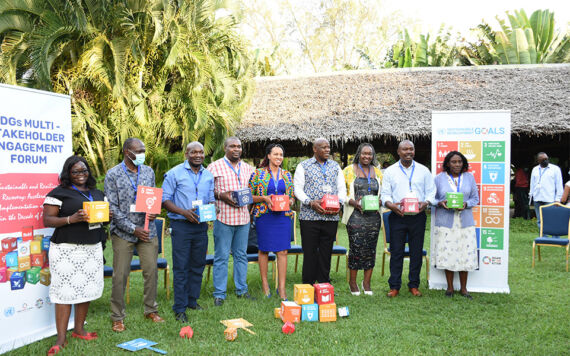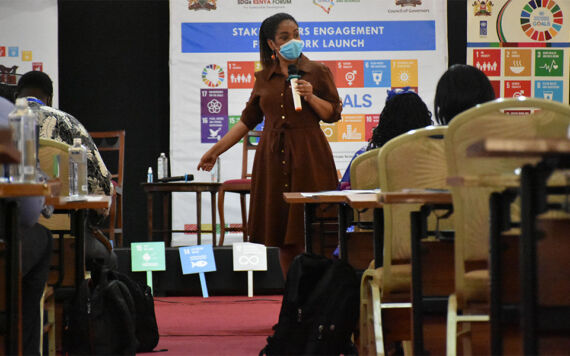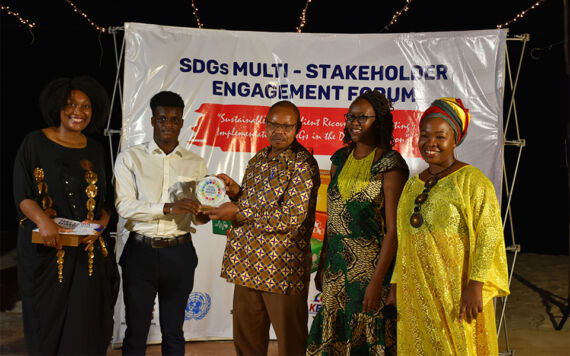| Project Name | Strengthening the Mandate of the Inter-Agency Techical Working Group in the SDGs Implementation in Kenya |
| Commisioned by | Federal Ministry for Economic Cooperation and Development (BMZ) |
| Country | Kenya |
| Implementing Organisation | SDGs Kenya Forum, hosted by Development Initiatives – devinit.org |
| Duration | April 2022 – December 2023 |
The Challenge
SDG Implementation via Medium-Term Development Plans: Kenya is committed to achieving the SDGs which are implemented through successive five-year Medium-Term Development Plans (MTPs). In 2018, the Government prioritized the “Big 4 Agenda”, which focuses on food security and nutrition, universal health coverage, affordable housing and manufacturing. However, a structural review and research plan on contributions and progress of the strategies has not been conducted.
Establishment of a Multi-Stakeholder Secretariat: Close collaboration between government and other stakeholders create space for joint planning, prioritisation and funding of activities through innovative approaches. Therefore, the Inter-Agency Technical Working Committee (IATWC) was established in 2016 as a national multi-stakeholder secretariat. It coordinates thematic caucuses that consist of key ministries, the Kenya National Bureau of Statistics (KNBS) and the National Youth Council, civil society and the private sector. The SDG Kenya Forum co-chairs the IATWC. Joint capacity building strategies and research remain a challenge but are highly relevant as both form the basis for further policy implementation.
The Objective
The project aims to strengthen synergies between the different stakeholders to enhance joint efforts through an accelerated plan for SDG implementation. The project strengthens the overall mandate of the Inter-Agency Technical Working Group to improve decision-making and reporting processes, increase accountability and create a shared understanding of challenges and solutions.
The Target Group
The project targets government bodies at national and county levels, development partners (especially those involved discourse on the SDGs) and Kenyan citizens, especially to reach those left behind.

About Development Initiatives
Development Initiatives (DI) works in Kenya to improve the accessibility and use of data and evidence on people, poverty and resources by all actors working in development and crisis management. Its ultimate goal is to enable better informed planning, policy making and reporting to reduce poverty and promote sustainable development.
About SDG Kenya Forum
The SDG Kenya Forum is a voluntary membership entity open to civil society organizations, government entities, academia, media and the private sector that subscribe to the value of the 2030 Agenda. Its mission is to influence multi-stakeholder policies and actions for the achievement of the SDGs.
Website: devinit.org
The Approach
Enhancing Data Use Mechanisms: The project promotes the collection and use of data by various stakeholders for policy advice to support the achievement of the SDGs in partnership with non-state organizations, academia and the private sector. This will result in the development of quality policies to help achieve the SDGs.
Stories of Change: The project seeks to document stories of change and engage in peer review processes showcasing best practices of SDG implementation through documentaries. By working with the media, advocacy efforts to improve policies and public services to achieve the SDGs will be strengthened and result in increased awareness at both national and county governments.
Capacity Building for IATWC-Members: The capacities for mainstreaming, reporting, localisation, and implementation of the SDGs of various stakeholders are built through joint-coalition actions. This will equip and inform implementers with appropriate sustained knowledge for implementation of the SDGs. This will ensure that the IATWC is supported and informed by joint-coalition actors forthe implementation of the SDGs.
Achieved Results
- A summary of the status of SDG implementation and reporting was published
- Good practices on the implementation of the SDGs both at counties and national level were documented
- 49 people were trained on SGD indicators and reporting as well as localizing strategies
- 123 people participated in dialogue sessions with countries and national decision makers
Bridget Rugube
Assistant Project Manager
SDG Kenya Forum
In the context of sustainable development, what do you consider the greatest challenge that you help to overcome in your country? What is special about your project and approach, with regard to the context in which it is located?
The project helped to overcome the challenge of implementation, such as ensuring programmes are owned and domesticated to fit the local context. It helped translate the goals into local level programmes by financing and delivering policies and packages relevant to the local context. The scope of the project was national but with engagements at country and community levels. Thus, activities in the project are carried out in partnership with diverse stakeholders involved in the implementation of the SDGs. Strenghthening such a multistakeholder engagement provides a platform to facilitate the involvment, participation, harmony, and synergy among all the stakeholders in the process. The multistakeholder approach is the plattform for all actors to engange.
Let’s get specific: What was your most significant project success? What was especially important/notable? What are you particularly proud of having achieved?
Supporting the lnteragency Technical Working Committee to develop the SDGs Recovery and Acceleration Strategy for the country especially after the Covid-19 pandemic. The process involved multiple layers of stakeholders from consultations to the actual drafting of the partnerships chapter of the strategy. The strategy was launched and made available to all, which translated to donnestication from national to local level. In the spirit of “leave no one behind”, community and county dialogues were held and these stood out as a land mark opportunitv for local people at the community level to interact with the SDGs and its key actors. Through the dialogues partnerships were forged and synergies were enhanced, thus accelerating the implementation of SDGs.
What have you learned and what experiences would you like to share with like-minded actors/practitioners?
Since the project is being implemented with various stakeholders, this means a multi-stakeholder approach is adopted which may lead to power imbalances causing misunderstandings and delays in decision making. Hence, a carefully planned strategic approach to stakeholder engagement, which is sector-specific, is key to the success of the project activities. Kenya was deliberate in adopting a multi-stakeholder approach to delivery of the Agenda 2030 and other actors can learn from the Kenyan model where civil society engages and convenes government and other stakeholders. Partnerships are key as this means enhanced synergies, shared responsibility, increased rate of success and ownership, joint workplanning, shared experiences and lessons learnt.

